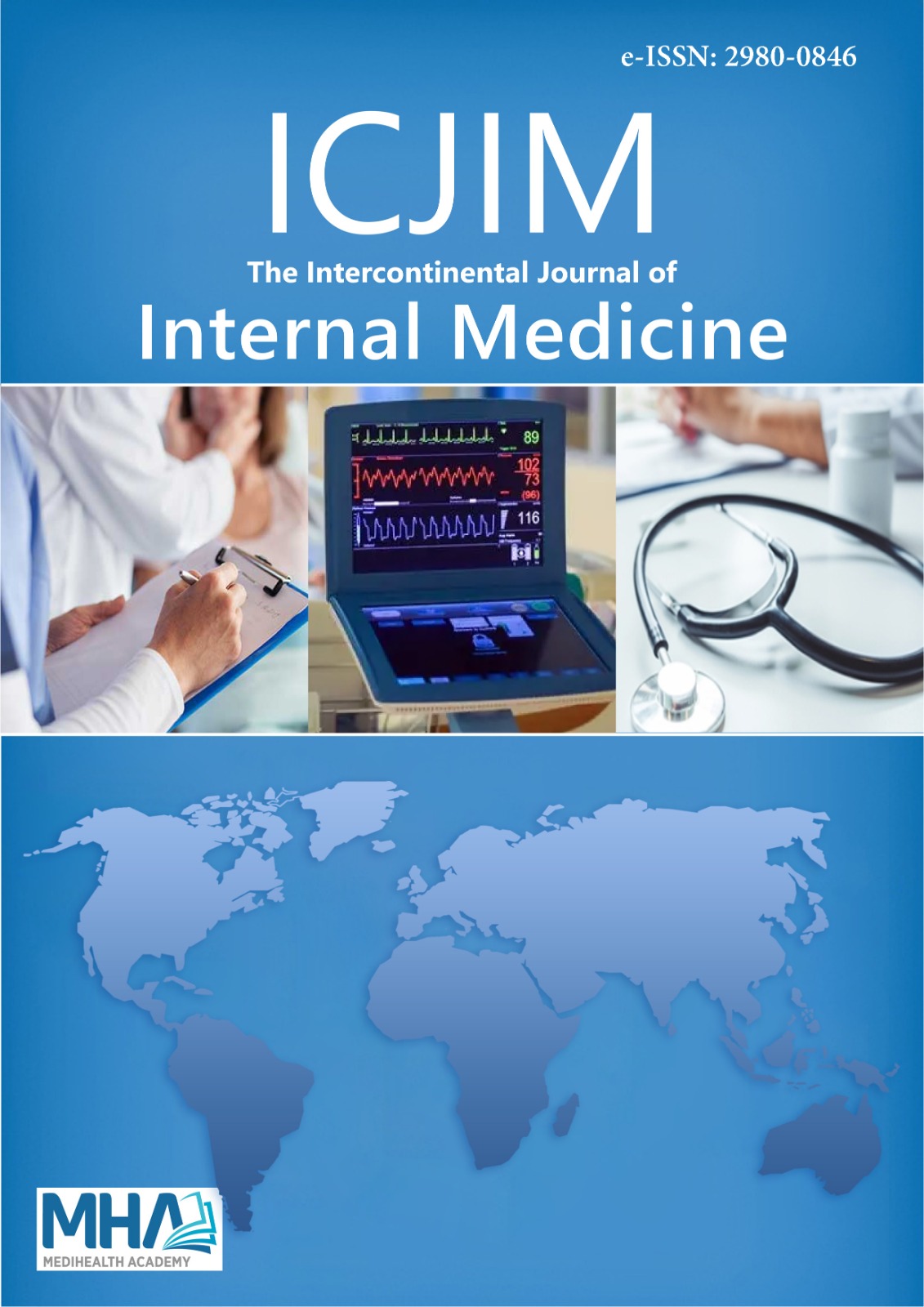1. AFAD. 06 Şubat 2023 Pazarcık-Elbistan (Kahramanmaraş) Mw: 7.7 - Mw: 7.6 Depremleri Raporu. Türkiye: AFAD; 2023 Haziran (cited 2023 Ekim 6): Available from:https://deprem.afad.gov.tr/assets/pdf/Kahramanmara%C5%9F%20Depremi%20%20Raporu_02.06.2023.pdf. 2023;
2. Gökkaya K. Geographic analysis of earthquake damage in Turkey between 1900 and 2012. <em>Geomatics Natural Hazards Risk. </em>2016;7(6):1948-1961.
3. Ahmed SK, Chandran D, Hussein S, et al. Environmental health risks after the 2023 Turkey-Syria earthquake and salient mitigating strategies: a critical appraisal. <em>Environ Health Insights. </em>2023;17:11786302231200865. doi:10.1177/11786302231200865
4. Gokalp PG. Disaster mental health care: the experience of Turkey. <em>World Psychiatry.</em> 2002;1(3):159-160.
5. Tempesta D, Curcio G, De Gennaro L, Ferrara M. Long-term impact of earthquakes on sleep quality. <em>PLoS One.</em> 2013;8(2):e55936. doi:10.1371/journal.pone.0055936
6. Yamaoka-Tojo M, Tojo T. Prevention of Natural Disaster-Induced Cardiovascular Diseases. <em>J Clin Med.</em> 2024;13(4):1004. doi:10.3390/jcm13041004
7. Sa Gomes EFAV, de Lima Cavalcanti MP, de Passos Junior MA, Vechio Koike BD. The association between sleep deprivation and arterial pressure variations: a systematic literature review. <em>Sleep Med X. </em>2022;4:100042. doi:10.1016/j.sleepx.2022.100042
8. Stephan Y, Sutin AR, Bayard S, Krizan Z, Terracciano A. Personality and sleep quality: Evidence from four prospective studies. <em>Health Psychol.</em> 2018;37(3):271-281. doi:10.1037/hea0000577
9. Lone A, Othman Albotuaiba A. Association between big five personality traits and hypertension in saudi patients: a case control study. <em>Psychol Res Behav Manag.</em> 2023;16:3427-3435. doi:10.2147/PRBM.S416828
10. Kalmbach DA, Anderson JR, Drake CL. The impact of stress on sleep: Pathogenic sleep reactivity as a vulnerability to insomnia and circadian disorders. <em>J Sleep Res.</em> 2018;27(6):e12710. doi:10.1111/jsr.12710
11. Karabulut DG, Yıldırım H, Elpeze G, Maden Ç. The relationship between post-earthquake anxiety status with sleep problems, low back and neck pain in victims of the Kahramanmaraş-centred earthquakes. <em>Harran Üni Tıp Fak Derg.</em> 2024;21(1):11-16.
12. Fath AR, Aglan A, Platt J, et al. Chronological impact of earthquakes on blood pressure: a literature review and retrospective study of hypertension in haiti before and after the 2010 earthquake. <em>Front Public Health.</em> 2020;8:600157. doi:10.3389/fpubh.2020.600157
13. Akram S, Baloch MYJ, Alrefaei AF, Almutairi MH, Idrees M, Al-Kubaisi H. Interface between mental health and the earthquake: considering humanitarian endeavor. <em>Front Public Health.</em> 2024;12:1326407. doi:10.3389/fpubh.2024.1326407
14. Nakaya N, Nakamura T, Tsuchiya N, et al. Psychological distress and the risk of withdrawing from hypertension treatment after an earthquake disaster. <em>Disaster Med Public Health Prep.</em> 2017;11(2):179-182. doi:10.1017/dmp.2016.102
15. Gesoglu Demir T, Havlioglu S. Determining adult dizziness and sleep quality after the 2023 earthquakes in Turkiye. <em>Cureus. </em>2024;16(7):e64632. doi:10.7759/cureus.64632
16. Bagatell R, Irwin MS. Tandem transplant for high-risk neuroblastoma: next steps in the era of precision medicine. <em>JAMA.</em> 2019;322(8):729-731. doi:10.1001/jama.2019.11641
17. Kankaya EA, Bilik O. Three enemies of circadian rhythm: anxiety, sleeplessness and pain in patients following open-heart surgery. <em>Clin Exp Health Sci.</em> 2019;9(3):246-252.
18. Lim LF, Solmi M, Cortese S. Association between anxiety and hypertension in adults: a systematic review and meta-analysis. <em>Neurosci Biobehav Rev.</em> 2021;131:96-119. doi:10.1016/j.neubiorev.2021.08.031
19. Suzuki S, Sakamoto S, Miki T, Matsuo T. Hanshin-Awaji earthquake and acute myocardial infarction. <em>Lancet.</em> 1995;345(8955):981. doi:10. 1016/s0140-6736(95)90727-0
20. Kario K, Matsuo T. Increased incidence of cardiovascular attacks in the epicenter just after the Hanshin-Awaji earthquake.<em> Thromb Haemost. </em>1995;74(4):1207.
21. Kayano H, Koba S, Matsui T, et al. Anxiety disorder is associated with nocturnal and early morning hypertension with or without morning surge: ambulatory blood pressure monitoring. <em>Circ J.</em> 2012;76(7):1670-1677. doi:10.1253/circj.cj-11-1085
22. Henskens LH, van Boxtel MP, Kroon AA, van Oostenbrugge RJ, Lodder J, de Leeuw PW. Subjective sleep disturbance increases the nocturnal blood pressure level and attenuates the correlation with target-organ damage. <em>J Hypertens.</em> 2011;29(2):242-250. doi:10.1097/hjh.0b013e32834192d5
23. Hla KM, Young T, Finn L, Peppard PE, Szklo-Coxe M, Stubbs M. Longitudinal association of sleep-disordered breathing and nondipping of nocturnal blood pressure in the Wisconsin Sleep Cohort Study. <em>Sleep.</em> 2008;31(6):795-800. doi:10.1093/sleep/31.6.795
24. Veith RC, Lewis N, Linares OA, et al. Sympathetic nervous system activity in major depression. Basal and desipramine-induced alterations in plasma norepinephrine kinetics. <em>Arch Gen Psychiatry. </em>1994;51(5):411-422. doi:10.1001/archpsyc.1994.03950050071008
25. Somers VK, Dyken ME, Mark AL, Abboud FM. Sympathetic-nerve activity during sleep in normal subjects.<em> N Engl J Med.</em> 1993;328(5):303-307. doi:10.1056/NEJM199302043280502
26. Sperry SH, Kwapil TR, Eddington KM, Silvia PJ. Psychopathology, everyday behaviors, and autonomic activity in daily life: an ambulatory impedance cardiography study of depression, anxiety, and hypomanic traits. <em>Int J Psychophysiol.</em> 2018;129:67-75. doi:10.1016/j.ijpsycho.2018.04.008
27. Oh CM, Kim HY, Na HK, Cho KH, Chu MK. The effect of anxiety and depression on sleep quality of individuals with high risk for insomnia: a population-based study. <em>Front Neurol.</em> 2019;10:849. doi:10.3389/fneur.2019.00849
28. Soqia J, Ghareeb A, Hadakie R, et al. The mental health impact of the 2023 earthquakes on the Syrian population: cross-sectional study. <em>BJ Psych Open.</em> 2023;10(1):e1. doi:10.1192/bjo.2023.598
29. Yildiz MI, Basterzi AD, Yildirim EA, et al. Preventive and therapeutic mental health care after the earthquake- expert opinion from the psychiatric association of Turkey. <em>Turk Psikiyatri Derg.</em> 2023;34(1):39-49. doi:10.5080/u27305
30. Wang S, Shi X, Chen X, Zhu Y, Chen H, Fan F. Earthquake exposure and PTSD symptoms among disaster-exposed adolescents: a moderated mediation model of sleep problems and resilience. <em>Front Psychiatry. </em>2021;12:577328. doi:10.3389/fpsyt.2021.577328
31. Haktanir A, Kurnaz MF. Systematic review of psychotherapies and meta-analysis of cognitive behavior therapy and narrative exposure therapy for treating earthquake-related posttraumatic stress disorder. <em>Psychol Trauma.</em> 2024. doi:10.1037/tra0001743
32. Lopes AP, Macedo TF, Coutinho ES, Figueira I, Ventura PR. Systematic review of the efficacy of cognitive-behavior therapy related treatments for victims of natural disasters: a worldwide problem. <em>PLoS One. </em>2014;9(10):e109013. doi:10.1371/journal.pone.0109013
33. Seto M, Nemoto H, Kobayashi N, et al. Post-disaster mental health and psychosocial support in the areas affected by the Great East Japan Earthquake: a qualitative study. <em>BMC Psychiatry.</em> 2019;19(1):261. doi:10.1186/s12888-019-2243-z
34. Mori K, Ugai K, Nonami Y, et al. Health needs of patients with chronic diseases who lived through the great Hanshin earthquake. <em>Disaster Manag Response.</em> 2007;5(1):8-13. doi:10.1016/j.dmr.2006.11.002

